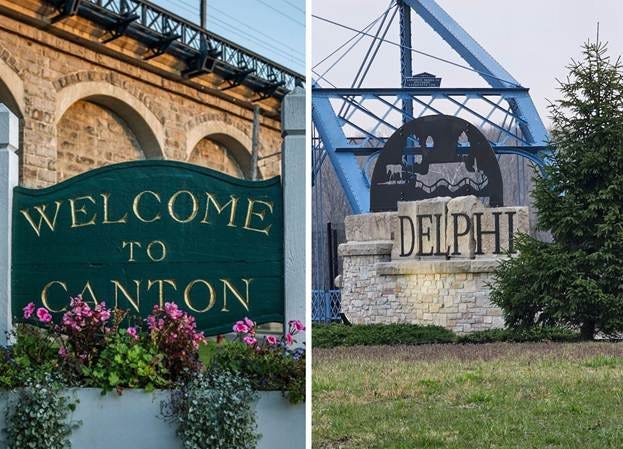Canton and Delphi Have Been Shaken by True Crime
In a way not seen in the past, true crime creators and web sleuths have distorted the realities of these communities that have become synonymous with high profile crimes
By Jayson Blair
As we prepare for the high-stakes drama that will come with the second Karen Read trial, it’s easy for our attention to turn to questions of justice, freedom, the victim or the impact on his loved ones. There is merit to exploring how we got here as my colleagues, Brett Talley and Alice LaCour of The Prosecutors podcast, did in a commentary this week.
But, as we approach Zero-Hour in the Read trial, in this age where true crime has branched beyond just entertainment and has begun to have real-world impact on trials, it is worth taking a look at the communities and people who have been engulfed by recent high-profile crimes.
No doubt, there have been localities that have become synonymous with crimes. Holcomb, Kansas, can be shorthand for the Clutter family murders featured in Truman Capote’s In Cold Blood. Columbine is the tachygraphy for the high school massacre that happened there. No one is confused when you say Sandy Hook, Waco, Jonestown or Salem, which is perhaps the most analog to what is happening now to towns like Delphi, Indiana and Canton, Massachusetts.
But there is something substantively different here.
Delphi and Canton have taken on the scorn on the level of cities most associated with the crack epidemic crime waves of the 1990s, where Minneapolis picked up the name Murderapolis during its height of violent crime, and Baltimore became known as Bodymore, Murderland. And much of that is due to true crime and its ancillary affiliates.

Web sleuths and true crime creators have turned the association of localities with crimes to broad condemnation, as the Internet, social media and online access to court records has empowered an international audience of the ill-informed and unscrupulous to dig into communities without context or solid on-the-ground reporting. YouTubers, podcasters, Redditers and even CourtTV and television news anchors have exaggerated routine crime and corruption to transform these communities into something that does not resemble reality.
And with the distortion of the contours of these real places, the real people in them have been caricatured into something resembling AI art.
When a beloved grandmother whose grandchild has been murdered falsely morphs into a methamphetamine dealer or a 10-person conspiracy that involves police officers and first responders is created out of thin air, the public begins to distort these places and their people into something otherworldly. It would not be such a big deal if it did not have impact on real people. Truthfully, Delphi and Canton are no different than most American cities of their sizes. In fact, they were just unlucky.
For those who are not paid subscribers, our next free article will drop next Monday morning. For those who are, please read on.
Keep reading with a 7-day free trial
Subscribe to True Crime Times Substack to keep reading this post and get 7 days of free access to the full post archives.


